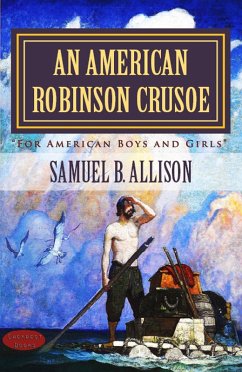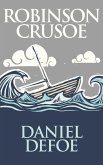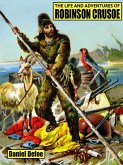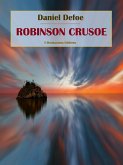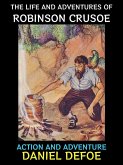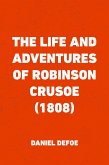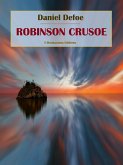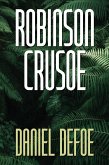"AN AMERICAN ROBINSON CRUSOE" is the outcome of many years of experience with the story in the early grades of elementary schools. It was written to be used as a content in giving a knowledge of the beginning and development of human progress. The aim is not just to furnish an interesting narrative, but one that is true to the course of human development and the scientific and geographical facts of the island on which Robinson is supposed to have lived. The excuse for departing so widely from the original story is to be found in the use which was desired to be made of it. The story here presented is simply the free adaptation of the original narrative to the demand for a specific kind of content in a form which would be interesting to the children. THERE ONCE lived in the city of New York, a boy by the name of Robinson Crusoe. He had a pleasant home. His father and mother were kind to him and sent him to school. They hoped that he would study hard and grow up to be a wise and useful man, but he loved rather to run idle about the street than to go to school. He was fond of playing along the River Hudson, for he there saw the great ships come and go. They were as big as houses. He watched them load and unload their cargoes and hundreds of people get off and on. His father had told him that the ships came from far distant lands, where lived many large animals and black men. His father told him too, that in these faraway countries the nuts on the trees grew to be as large as one's head and that the tree were as high as church steeples. When Robinson saw the ships put out to sea he would watch them till they would disappear below the horizon far out in the ocean, and think, "Oh, if I could only go with them far away to see those strange countries!" Thus he would linger along the great river and wish he might find an opportunity of making a voyage. Often it would be dark before he would get home. When he came into the house his mother would meet him and say in a gentle voice, "Why, Robinson, how late you are in getting home! You have been to the river again."
Dieser Download kann aus rechtlichen Gründen nur mit Rechnungsadresse in A, B, BG, CY, CZ, D, DK, EW, E, FIN, F, GR, H, IRL, I, LT, L, LR, M, NL, PL, P, R, S, SLO, SK ausgeliefert werden.

